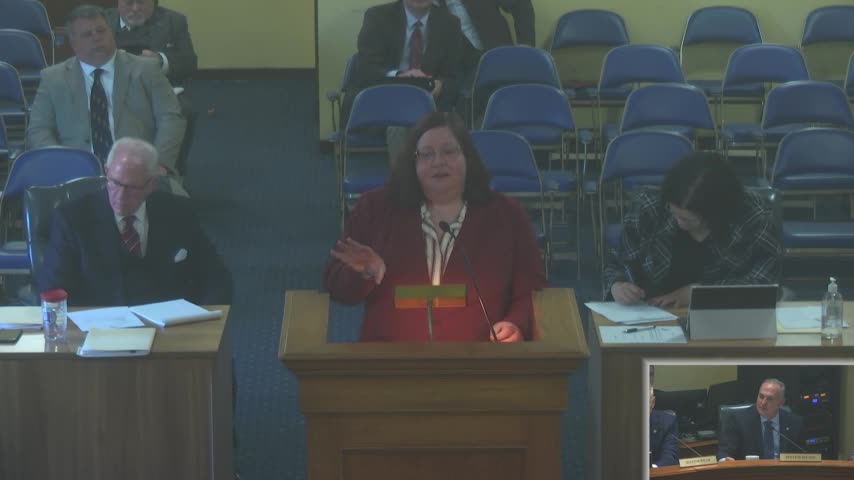Committee approves substitute requiring utilities to report road-impact projects to Division of Highways
Get AI-powered insights, summaries, and transcripts
Subscribe
Summary
Committee substitute for Senate Bill 1 would require utilities to report planned projects that dig or cut into paved roads to the local Department of Highways district office beginning February 2026. The Department of Highways would publish paving plans and reports; utilities must repair roads as good or better than pre-work condition.
The Senate Government Organization Committee agreed to report the committee substitute for Senate Bill 1 to the full Senate with a recommendation that it do pass. The committee substitute, reported from Transportation and Infrastructure, directs utilities to provide annual reports of planned projects that require digging or cutting into paved roads; the reports must be submitted to the local Department of Highways (DOH) district office beginning February 2026.
Committee counsel described the measure as coordinating timing between DOH paving jobs and utility construction to avoid tearing up newly paved roads. The substitute requires DOH to consider utility reports when planning paving activity and, beginning Sept. 1, 2025, to publish a map of DOH districts, a list of planned paving projects with approximate dates, and copies of utility reports for the most recent year. The bill explicitly preserves DOH authority to perform safety maintenance such as pothole repair and does not preclude permitted emergency utility work. The substitute also requires utilities to repair roads after utility work without unreasonable delay and to restore them to as good or better condition as before.
Nate Taney, general counsel for the Department of Highways, testified that the intent is to improve coordination and reduce instances where a newly paved road is dug up soon after completion. He said DOH already maintains a maintenance map and that the bill, if utilities provide information proactively, would allow district planners to compare schedules and, where possible, adjust paving plans. Taney noted the substitute removed specific statutory deadlines that had appeared in an earlier version; he said DOH generally plans projects well in advance but that emergency work and certain permitting processes can require exceptions.
The sponsor, identified in the transcript as the senator from Ohio, said the substitute removed the Public Service Commission as intermediary so utilities report directly to DOH. Senators questioned DOH and the sponsor about timing and whether the substitute gives DOH authority to require utilities to repave larger sections rather than merely patch trenches; DOH counsel said the substitute requires repair to as good or better condition, and while DOH's enforcement tools are limited, the department can negotiate and require better repairs under existing permitting processes in some cases.
The committee adopted the language of the committee substitute and the vice chair moved that the substitute be reported to the full Senate with recommendation to pass. The motion carried by voice vote; the committee announced the substitute will be reported to the full Senate.
